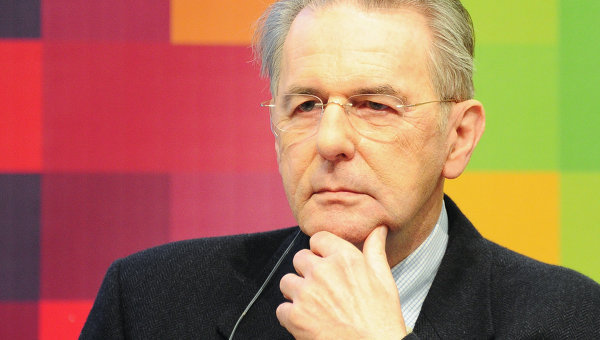MOSCOW, August 9 (RIA Novosti) – International Olympic Committee president Jacques Rogge said Friday there are “still uncertainties” in how Russia’s controversial “gay propaganda” legislation might affect athletes and spectators at the Sochi 2014 Olympics, and the IOC has asked the Russian authorities for clarification before presenting its official stance.
The law, which was signed by Russian President Vladimir Putin in June, levies stiff fines for individuals or organizations who promote homosexuality to minors. The legislation has stoked the ire of world leaders, athletes and gay rights activists, many of whom have called for a campaign to boycott the Sochi Games next February.
Rogge said the IOC is looking at written confirmation from the Russian side that the law will not apply to athletes and visitors in Sochi.
“We received it yesterday and we studied it this morning,” he said at a press conference in Moscow ahead of the world athletics championships. “There are still uncertainties and we have asked for more clarification as of today.”
The current confusion is tied up in the English translation of the Russian law, as the IOC does not have a “good comprehension” of its wording, he said.
Rogge confirmed however that the IOC has received “all assurances” from Russian Olympic supervisor Dmitry Kozak that Sochi athletes and visitors will be exempt from the law.
Amid the rising clamor for an international boycott of official protest of the Sochi Olympics, Russian Sports Minister Vitaly Mutko said Thursday that foreign governments, sports federations and athletes should “calm down” over the new legislation.
While the law’s proponents argue it is aimed at protecting children from harmful influences, critics allege that the move is part of a broader crackdown on Russia’s gay community.
Russia has come under international criticism, including from the European Court of Human Rights and European Parliament, for its treatment of gay people.



